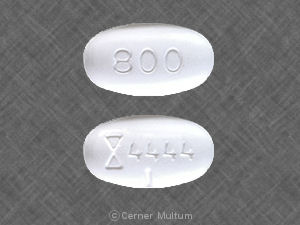What Is Gabapentin?
Gabapentin, also known by the brand name Neurontin, is a prescription painkiller belonging to its own drug class, Gabapentinoids.

It is considered an anti-convulsant, and is most commonly used to treat epilepsy, restless leg syndrome, hot flashes, and neuropathic pain. It is often used as a less-addictive alternative to opioids; however, Gabapentin addiction and abuse still occur in many patients.
Gabapentin has a similar chemical structure to Gamma-aminobutyric acid (GABA), the brain chemical which affects the body’s nervous system. It can produce feelings of relaxation and calmness, which can help with nerve pain, anxiety, and even poor sleep.
Gabapentin is prescribed to treat nerve pain, alcohol and cocaine withdrawals, restless leg syndrome, diabetic neuropathy, fibromyalgia, and seizures. It works by altering one’s calcium channels to reduce seizures and ease nerve pain. Some brand names of Gabapentin are Neurontin and Gralise. The drug’s known street names are “gabbies” or “johnnies.”
In addition its potentially addictive nature, Gabapentin can cause suicidal thoughts, moods swings, and abrupt changes in a user’s behavior. It can also cause elevated blood pressure, fever, sleep problems, appetite changes, and chest pain.
Gabapentin Abuse
Gabapentin abuse tends to occur in people who already have an addiction to opioids or other drugs. The effects of Gabapentin intoxication have been described as a sense of calm, euphoria, and a high similar to marijuana.
A 2013 study in Kentucky found that of the 503 participants reporting illegal drug use, 15% reported using Gabapentin in addition to other drugs to get high in the previous six months. Another study, working with a sample of participants meant to represent the national population, found almost a quarter of patients with co-prescriptions of opioids and Gabapentin were getting more than three times their prescribed amount to supply their addiction. People using the drug without a prescription is a growing problem in many areas. Due to the drug’s legal status, this is difficult to address from a policing standpoint. States where Gabapentin abuse is becoming more common are beginning to classify the drug as a more strictly controlled substance.
Gabapentin’s unique ability to address multiple ailments has made it one of the most popular prescription medications in the U.S. In May of 2019, GoodRx reported that it was the fifth-most prescribed drug in the nation. Despite its low abuse potential, its ability to be used in conjunction with other drugs causes widespread harm and addiction.

Signs of a Gabapentin Addiction
Effects of excessive Gabapentin use include:
-
-
- Drowsiness
- Coordination problems
- Tremors
- Dizziness
- Depression
- Suicidal thoughts/behaviors
- Changes in mood
- Dizziness
- Poor coordination
- Forgetfulness
- Anxiety
- Difficulty speaking
- Inability to feel pleasure
-
It is important to try to recognize these symptoms and to be wary of other red flags, such as the presence or abundance of pill bottles. These effects can be detrimental to one’s health, livelihood, and overall safety.
Many Gabapentin users in early recovery abuse Gabapentin because at high doses (800mg or more), they may experience a euphoric-like high that does not show up on drug screens. Gabapentin abusers typically take the drug in addition to opioids to produce their desired high, a dangerous and potentially deadly combination. It is possible to fatally overdose on Gabapentin, both on its own or in conjunction with other drugs. However, there is currently no antidote that can be administered to someone in the case of a Gabapentin overdose as there is with opioid overdoses. If you find a loved one showing signs of an overdose–drowsiness, muscle weakness, lethargy and drooping eyelids, diarrhea, and sedation—seek medical attention immediately.
Signs of Gabapentin Addiction
-
-
- Lying about or exaggerating symptoms to doctors
- Seeking out multiple doctors to get extra doses
- Switching doctors after the original doctor refuses to continue prescribing the medication
- Changes in social habits and/or circles
- Changes in personal hygiene and grooming habits
- Constant preoccupation with the drug
- Unease at the thought of the drug being unavailable
- Refusal to quit despite social, financial, or legal consequences
- Failed attempts to quit
-
Frequent and excessive use of Gabapentin can lead to a physical and psychological dependence on the drug. This is when someone becomes so accustomed to taking a drug that they need it to feel and function normally. Quitting a drug like Gabapentin cold turkey can be dangerous and induce several withdrawal symptoms of varying severity. These include anxiety, insomnia, nausea, pain, and sweating. Quitting also increases one’s likelihood of having a seizure which can lead to personal injury or the development of medical problems and life-threatening emergencies. Trying to quit should be done at a rehab facility or with the guidance and supervision of a professional during a medical detox.